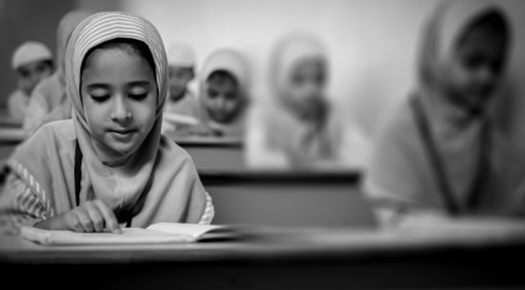
The Office for Standards in Education, Children's Services and Skills (OFSTED) is a non-ministerial department of the UK government, reporting to Parliament. OFSTED is responsible for inspecting a range of educational institutions, including state schools and some independent schools. It also inspects childcare, adoption and fostering agencies and initial teacher training, and regulates a range of early years and children’s social care services.
“While respecting parents’ choice to bring up their children according to their cultural norms, creating an environment where primary school children are expected to wear the hijab could be interpreted as sexualisation of young girls,” Amanda Spielman, the head of OFSTED and chief inspector of schools, said.
In order to protect and promote equality for children, inspectors will talk to girls who wear such garments to ascertain why they do so in the school. “We would urge any parent or member of the public who has a concern about fundamentalist groups influencing school policy, or breaching equality law to make a complaint to the school. If schools do not act on these complaints they can be made to OFSTED directly,” she added.
Both the Department for Education and OFSTED have required schools to teach and reflect fundamental British values, especially after the “Trojan horse” affair that erupted in Birmingham in 2014, which provoked controversy over fears of Islamist influence in state schools. OFSTED classified Al-Hijrah school, a state Islamic faith school in Birmingham, as inadequate and recently a long legal battle was led because of maintaining strict segregation between boys and girls.
The Muslim Council of Britain secretary-general, Harun Khan, responded to the move saying: “It is deeply worrying that OFSTED has announced it will be specifically targeting and quizzing young Muslim girls who choose to wear the headscarf. “It sends a clear message to all British women who adopt this that they are second-class citizens; that while they are free to wear the headscarf, the establishment would prefer that they do not,” he said.
He added that many British Muslims who choose to wear the headscarf have done extremely well in education and are breaking glass ceilings. “It is disappointing that this is becoming policy without even engaging with a diverse set of mainstream Muslim voices on the topic,” he said.
The question is whether young girls from primary schools can even make their own choices when it comes to wearing hijab or headscarf or they just copy examples they see in the family.
According to a Muslim mother, Dr. Sana Ramiz, who wrote a letter to the Guardian, it is absurd and prejudiced to suggest that hijab ‘sexualizes’ girls. She wrote – “Amanda Spielman is arguing that a certain garment sexualizes girls. If so, will Ms Spielman be extending this “inspection” to cover other items of clothing? Do short skirts sexualize girls more than trousers?”
Photo Credits: Kindred Spirits Teaching
